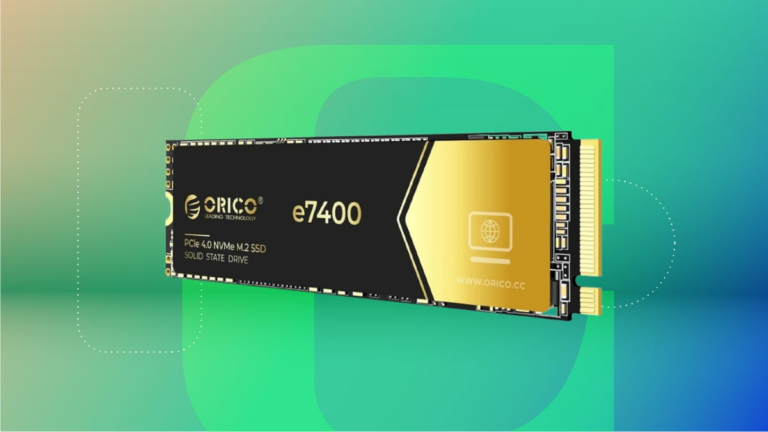Best Debit Cards for Kids and Teens: Greenlight, BusyKid and More

My Gen Z teen obtained her first after-school job a 12 months in the past, so she needed a straightforward approach to entry her cash and save for particular targets, like an upcoming journey overseas.
I needed one thing that might develop together with her past highschool and thru school, so we selected a teen debit card that could possibly be helpful to her past commencement. We needed automated deposit for her paychecks, straightforward transfers and — most essential to me — no charges.
If she was youthful, I may need been extra considering academic options or choices for encouraging her to do her chores, however she’s a bit past that.
Nevertheless, I nonetheless needed some safeguards, together with setting limits on spending and getting alerts when she makes purchases.
That function got here in helpful not too long ago when she went to a espresso store together with her mates. I wasn’t alarmed after I obtained an alert that she made a purchase order at a close-by restaurant, however then I obtained a second alert for a purchase order of the identical quantity on the similar restaurant. I texted her instantly to ask if there was a mistake. It seems, she ordered French fries for the group, however the serving dimension was too small, so she purchased a second spherical.
In the event you’re contemplating a debit card on your baby or teen, there are a number of choices that may assist your baby save their money and construct good cash habits. We’ll enable you to kind by way of the options to choose the cardboard that is proper on your child.
The perfect debit playing cards for youths and youths, in contrast
| Card | Month-to-month charges | Age |
|---|---|---|
| Greenlight Debit Card | $6 to $15, for as much as 5 youngsters | Any |
| BusyKid Debit Card | $4 for as much as 5 youngsters | Any |
| GoHenry Debit Card | $5 for one baby; $10 for as much as 4 youngsters | 6 to 18 |
| Step Debit Card | None | Any |
| Axos First Checking | None | 13 to 17 |
| Capital One Cash Teen Checking | None | 8 |
| Chase First and Excessive Faculty Checking | None | 6 to 17 |
As of April 23, 2025.
Minimal age: None
Month-to-month payment: $6 to $15 a month, for as much as 5 youngsters
Free trial: 1 month
ATM payment: None
Buy charges: None
Rewards: 1% money again for purchases, as much as 5% per 12 months on financial savings
One of the vital well-liked debit card apps for kids, the Greenlight Debit Card for Children permits dad and mom to limit spending to particular shops, lets youngsters earn curiosity on rising balances and helps households set particular financial savings targets. The app is intuitive and straightforward to navigate.
You possibly can select between three plans: Greenlight Core ($6), Greenlight Max ($10) or Greenlight Infinity ($15). Your baby can earn an annual share yield, or APY, between 1% and 5% on financial savings balances as much as $5,000, relying on the plan. The Greenlight Infinity plan comes with extra security options, together with vehicle crash detection and SOS alerts.
We like that Greenlight lets dad and mom pay youngsters for finishing chores — you’ll be able to schedule automated funds so you do not neglect. The app permits youngsters to divide their funds between spending, saving, investing and giving. And fogeys will recognize the free monetary literacy sport that’s accessible after downloading the app.
Minimal age: 5
Month-to-month payment: $4 a month (billed $48 yearly), as much as 5 youngsters per plan
Free trial: 30 days
ATM payment: None
Buy charges: None
The BusyKid Visa Pay as you go Debit Card is a superb useful resource to assist youngsters develop monetary literacy expertise. Children obtain a pay as you go debit card for spending, and so they can put money into particular person shares or donate cash to a charitable trigger. You possibly can handle their chores and allowance from the app. Plus, you’ll be able to ship bonuses for rewards — like good grades or simply as a result of.
Minimal age: 6
Month-to-month payment: $5 for one baby; $10 for as much as 4 youngsters
Free trial: 1 month
ATM payment: None
Buy charges: None
Acorns Early (previously GoHenry) is an effective alternative for folks who need to assist youthful youngsters tackle extra family obligations and pay them for a job effectively accomplished. It is identified for its personalised debit playing cards and companion app with options akin to parental controls, customizable chores and financial savings targets.
Cash Missions increase your kid’s monetary literacy growth with age-appropriate in-app movies, tales and quizzes. You may also reward your baby financially as they full the teachings.
What we actually like: The corporate’s coverage clearly states that it would not promote your — or your youngsters’ — private data to 3rd events with out your permission.
Minimal age: None; 13 for Step Black
Month-to-month payment: None for primary; $5 for Step Black (waived with direct deposit)
Free trial: None
ATM payment: $2.50 payment for out-of-network ATM (no payment for Step Black)
Buy charges: None
Step could also be higher suited to teenagers who’re able to stage up their monetary information, because it offers entry to funding instruments and affords monetary literacy coaching programs. Nevertheless, there is no minimal age to enroll, and youthful youngsters can simply use Step to start out studying tips on how to handle spending accounts and set financial savings targets. And Step would not cost a month-to-month payment to keep up the fundamental account.
Like a daily debit card, Step attracts on deposited funds to pay for purchases. In contrast to a debit card, the Step card processes all transactions as credit score — which implies your baby can construct credit score safely with out having to fret about overdraft charges or accruing curiosity.
We like that Step affords direct deposit so your teen can ship their paychecks on to their account. Your baby may also earn rewards when utilizing their debit card at choose retailers.
Step Black, which is free to teenagers with direct deposit (in any other case, it is $5 a month) additionally lets them spherical up purchases to the closest greenback and add the distinction to a financial savings purpose. In the event that they use direct deposit so as to add $500 or extra monthly to their Step Black account, your baby can earn a 4% APY on balances as much as $1,000,000.
However there is a main downside to think about. Step makes it clear that it shares your private data with enterprise companions to serve up services or products affords primarily based in your kid’s information. Step’s privateness coverage says you’ll be able to decide out, however you will have to contact the corporate instantly.
Minimal age: 13
Month-to-month payment: None
Free trial: None
ATM payment: None
Buy charges: None
Axos’ First Checking account teaches teenagers (ages 13 to 17) to make use of a debit card. Your baby can use the account to ship cash to individuals and distributors and to pay payments. It additionally affords 0.10% APY, so your baby can earn some curiosity on their stability. We like that there are not any month-to-month upkeep, overdraft or nonsufficient funds charges, plus teenagers can stand up to $12 in home ATM reimbursements monthly. However there aren’t many different perks geared towards rewards and allowances.
Mother and father can handle the teenager’s account from the cellular app. It will help you monitor spending, management entry to the debit card and set alerts.
Axos does share your private data with different monetary firms to market services to you, however you’ll be able to decide out of focused affiliate adverts.
Minimal age: 8
Month-to-month payment: None
Free trial: None
ATM payment: None
Buy charges: None
In the event you’re on the lookout for a card that your child will not outgrow after they flip 18, the Capital One Cash Teen Checking is an effective possibility. It lets teenagers preserve their authentic account or open a 360 Checking account and switch their stability.
The Cash Teen Checking can hyperlink to an exterior checking account, which implies dad and mom do not should have a Capital One account themselves to switch cash to their youngsters. Mother and father even have the choice to allow Zelle entry so youngsters can ship cash shortly.
Additionally, the Capital One card would not cost overseas transaction charges, which might come in useful if the kiddo is touring abroad.
Minimal age: 6
Month-to-month payment: None
Free trial: None
ATM payment: None
Buy charges: None
Chase affords two forms of checking accounts with debit card entry for youth. Mother and father should have already got an present Chase checking account to open an account for his or her youngsters, however neither account prices a month-to-month payment or requires a minimal stability.
The Chase First Banking account is on the market to youngsters ages 6 to 17. It consists of helpful options that oldsters will recognize, akin to spending controls, financial savings purpose monitoring and a recurring allowance possibility that may be paired with a chore listing.
The Chase Excessive Faculty Checking account is for youths ages 13 to 17. It affords extra freedom — akin to account alerts as a substitute of parental spending controls — and offers direct deposit, cellular test deposits and Zelle transfers. One draw back is that you simply and your baby should go to a department to open the account in particular person.
Why you may want a debit card on your youngsters
It is easy to low cost this, however youngsters can begin incomes cash at an early age. Whether or not from birthday presents, rewards for stellar report playing cards or beneficiant grandparents, your baby could take pleasure in a gradual supply of earnings effectively earlier than they hit double digits.
Educating your baby tips on how to handle cash early on can set them on the suitable path for his or her monetary future. Consultants suggest exposing your youngsters to monetary literacy matters from an early age. “Whilst a toddler, they will nonetheless begin changing into comfy and assured with cash,” Amy LeBaron-Blacketting, an assistant professor of household life at Brigham Younger College, stated in an interview with ZDNet.
Whereas a piggy financial institution is a superb visible assist for exposing younger youngsters to financial savings and money administration ideas, opening an account with debit card entry on your baby may be extra handy, simpler to handle and academic, because it permits them to take part in complicated monetary transactions akin to transferring money to financial savings accounts, opening a certificates of deposit and investing.
However not all banks and credit score unions supply accounts with debit card entry for minors underneath the age of 13.
A debit card designed for youths — one with useful academic instruments and an intuitive interface — will help train them tips on how to set financial savings targets, “earn” cash from dad and mom for finishing chores or obtain direct deposits from an actual job as soon as they start receiving paychecks. And debit playing cards are usually a safer possibility than carrying money.
In the event you’re fearful about overspending or poor cash administration, most debit playing cards designed for youths are related to apps which have parental controls and protections so you’ll be able to preserve a detailed eye in your youngsters’s monetary actions.
Are debit playing cards for youths secure?
New know-how all the time presents dangers, particularly when youngsters are concerned. And it is not simply considerations about display screen time — about 5% of youngsters have suffered id theft, in accordance with the 2024 Baby & Household Cybersecurity Research from Javelin Analysis.
Although that was not the fault of the monetary trade, the banks do play a task in the issue. Knowledge mining has grow to be a invaluable useful resource for companies, and monetary firms have proven that they are prepared to promote buyer information. So the burden finally falls on prospects to watch and defend their very own — and their youngsters’s — information.
Weighing the advantages and dangers of a debit card on your baby entails a balancing act. The primary factor to think about is how a lot you are comfy sharing on-line. Whereas each issuer is totally different, you will want to supply figuring out details about your self and your baby to enroll, together with beginning dates, Social Safety numbers, deal with and a cellphone quantity.
The corporate might also ask you to share your GPS location historical past, buy historical past and behavioral profile — data which will permit the app to share focused adverts for services. That stated, debit playing cards for youths are sometimes no riskier than their grownup counterparts for just a few causes:
- Baby-specific legal guidelines: The Kids’s On-line Privateness Safety Act, or COPPA, takes privateness a step additional for kids underneath 13 who use banking merchandise by requiring issuers to obviously define what data they’re amassing and get parental consent beforehand. Pay shut consideration as to if the issuer intends to promote your kid’s information to 3rd events.
- Buy safety: In case your kid’s card is misplaced or stolen, some issuers supply refunds for fraudulent purchases — for an extra payment. Greenlight’s pricier Max and Infinity plans present buy safety.
- Locking functionality: Most debit playing cards for youths include a parental locking function that lets you defend the money within the account by way of your app if the cardboard is misplaced.
- Deposit insurance coverage: Pay as you go debit playing cards issued by banks insured by the Federal Deposit Insurance coverage Company defend as much as $250,000 per particular person, per establishment, which means you will not lose the cash in your account if the financial institution fails.
Though the identical safety measures defend child and grownup debit playing cards, it bears repeating that any data you share about your baby on-line will increase their threat profile. On-line information breaches have uncovered huge numbers of accounts, which regularly comprise delicate data, together with Social Safety numbers, addresses, cellphone numbers and bank card numbers.
After signing your baby up for a debit card, search for payments or bank card purposes addressed to them, and ask questions if a debt collector calls with their title on file. The Federal Commerce Fee outlines steps to take should you suspect id theft, and Experian affords a free ID scan service to see whether or not your kid’s SSN is energetic on any credit score accounts.
Setting expectations along with your baby
Earlier than you hand over a card to a younger and keen spender, an in depth dialog about debit card use is essential. When the debit card arrives, sit down along with your baby and focus on the crucial factors.
- Security: Most debit playing cards present a locking function if the cardboard is misplaced or stolen, however you’ll be able to’t take the mandatory steps with out communication out of your child. Remind them to maintain their card in a secure place, to not share their password or PIN with anybody and to not make purchases on an unsecured Wi-Fi community. And solely use ATMs at banks to mitigate the chance of debit card skimming — a hack to steal card numbers. In the event that they suppose their card is compromised, they need to inform you straight away.
- Spending guidelines: In the event you’re involved about the place your baby could spend their money, contemplate signing up for a debit card akin to Greenlight or Chase First Banking that lets you block sure retailers. In the event you’ve already signed up for a card that does not have this function, speak to your baby about applicable spending habits and allow them to know that you’re going to be monitoring their purchases.
Components to think about earlier than choosing a debit card on your baby
Earlier than you select a debit card on your child, contemplate the next elements:
Parental controls
All of the apps listed above supply quite a lot of parental controls, together with the flexibility to routinely pay an allowance, lock the debit card or test your child’s accessible stability. Some options let you choose which forms of purchases your youngsters could make, set spending limits and set rewards for finishing sure duties.
Totally different apps present various levels of management, however most will allow you to preserve tabs in your kid’s spending and saving, and assist them handle their cash as wanted.
Instructional sources
Many of the playing cards right here embody entry to academic sources for you and your baby. Your youngsters can be taught essential expertise like budgeting, saving, spending and even investing. Some playing cards supply sources primarily based on age and monetary literacy classes — akin to spending, saving, credit score and extra.
Age
Some debit playing cards designed for youths have minimal age limits, however most help you enroll a baby till they’re 17 years previous; they will open an account on their very own at 18. You may have to substantiate the minimal or most age and determine if it is the suitable time on your baby to get a debit card.
Eligibility
Many debit playing cards designed for kids require private data and a shared checking account. Mother and father should additionally present data and obtain the app to handle their child’s account and switch cash.
Usually, this data consists of easy identification akin to e-mail, cellphone quantity, deal with and date of beginning. It could additionally embody the mother or father’s and kid’s Social Safety numbers.
Spending expectations
Some debit playing cards for kids function spending and withdrawal limits that oldsters can set. You may need to make certain your kid’s spending will not exceed the debit card’s limits.
Financial institution familiarity
Remember to test whether or not your most popular financial institution affords a youngsters’s debit card. It is normally simpler to get new merchandise or good phrases if you have already got a longtime relationship with the monetary establishment.
How one can signal your baby up for a debit card
As soon as you’ve got settled on a debit card on your baby, you’ll be able to apply securely on the cardboard issuer’s web site by offering the entire required data, together with title, date of beginning, deal with, e-mail, cellphone quantity and probably your SSN.
As soon as your baby has a card, assist them construct accountable monetary habits. Discuss how a lot they will count on to obtain recurrently and create floor guidelines to assist them allocate their funds responsibly.
FAQs
Which debit playing cards for youths are free?
There are a variety of debit playing cards for youths that do not cost membership charges, together with Step and Axos First Checking. Paid providers could supply extra options, although.
How do I be taught what the corporate is doing with my kid’s data?
Firms reserve the suitable to vary how they use collected information at any time, so it is a good suggestion to maintain observe of your account’s privateness coverage and use of focused adverts proven to your baby by way of the app. Shopper safety legal guidelines govern elements of what firms can share, however not all. As soon as you’ve got chosen a product, learn the superb print rigorously to ensure it aligns along with your consolation stage.
How can I inform whether or not my kid’s private information is compromised?
Minors are prime targets for id theft, primarily as a result of dad and mom typically do not detect an issue till their baby begins working and submitting tax returns. Though most debit playing cards for youths acquire solely the custodial account holder’s SSN, it is nonetheless prudent to search for indicators of kid id theft, together with debt assortment calls, payments or bank card purposes that seem in your kid’s title. The FTC outlines steps to take should you suspect id theft, and Experian affords a free ID scan service to see whether or not your kid’s SSN is energetic on any credit score accounts.




